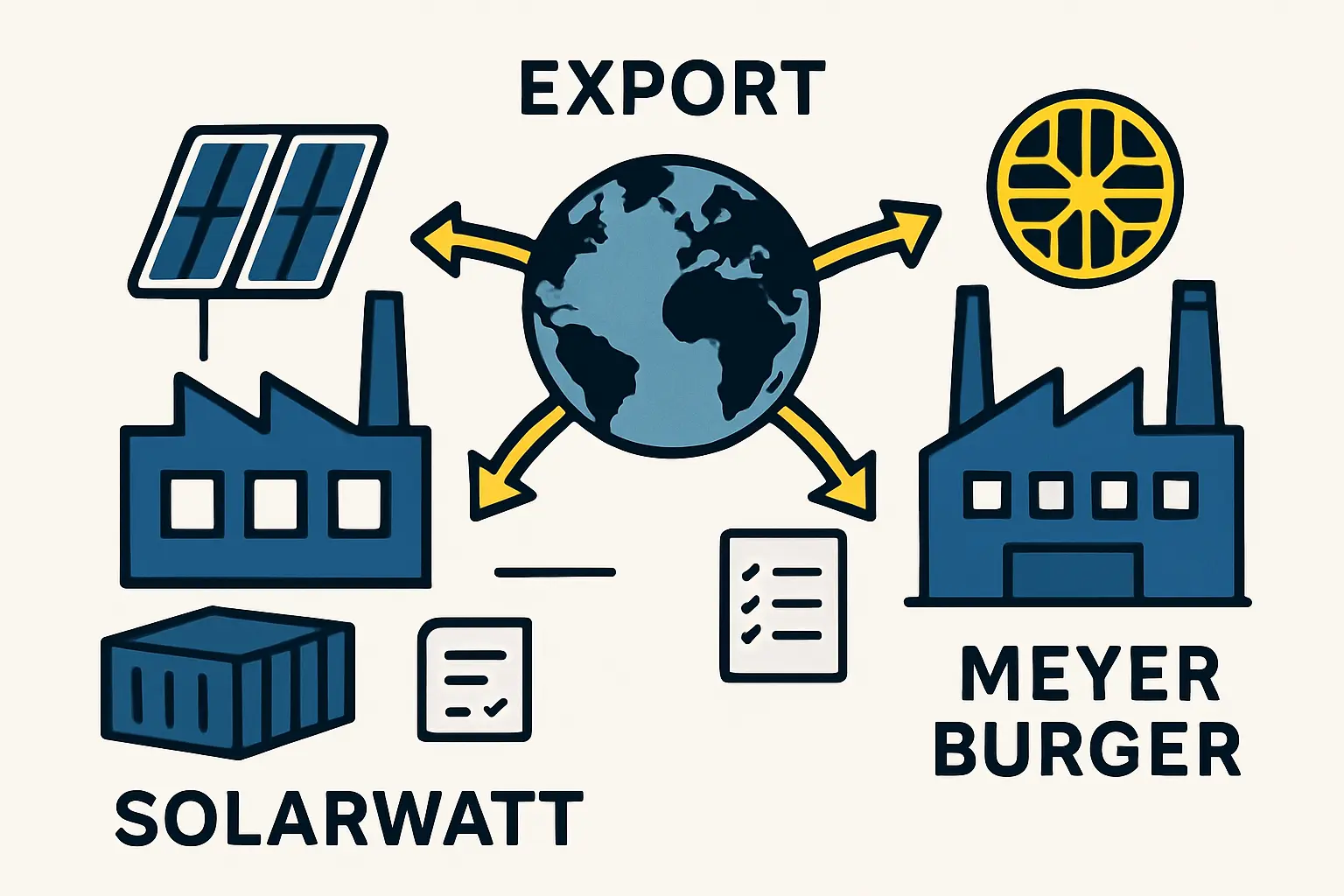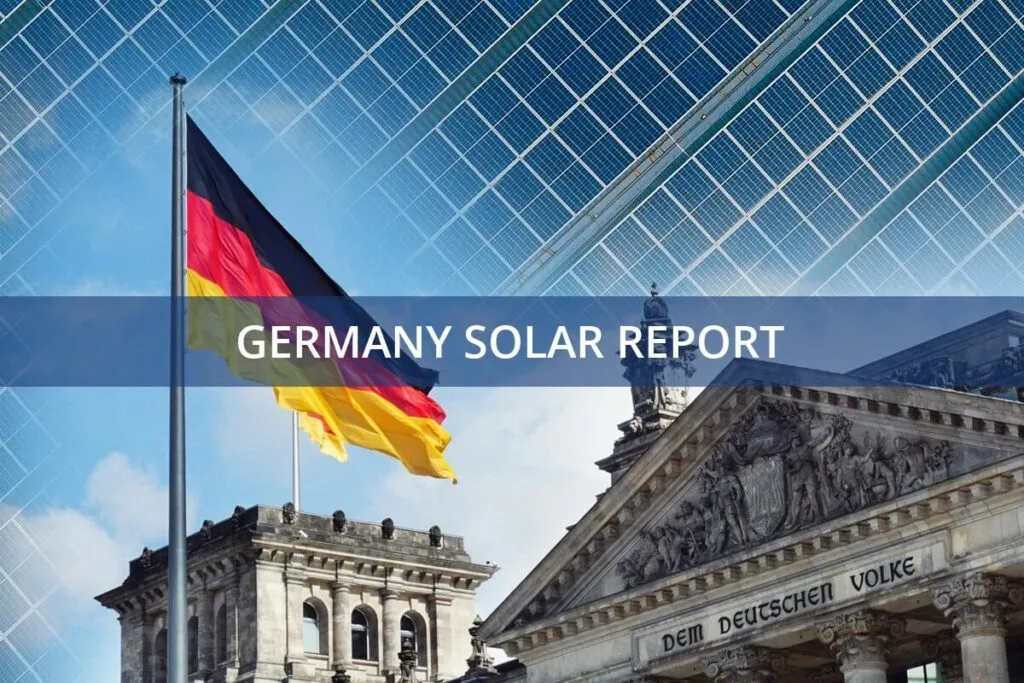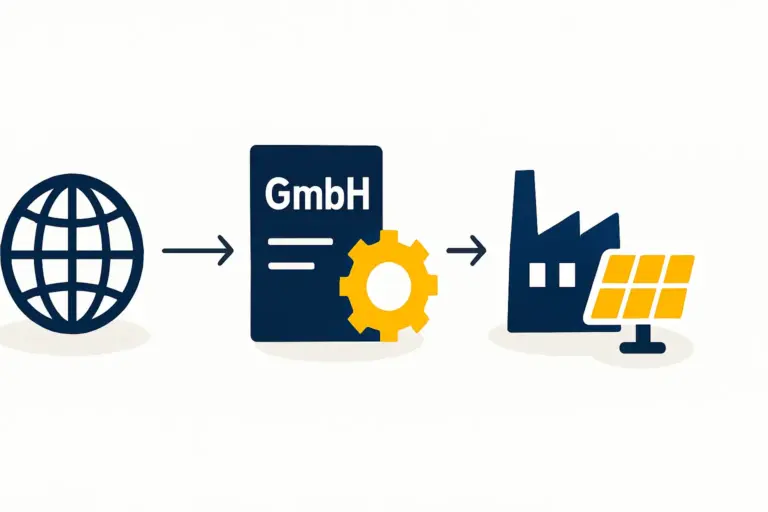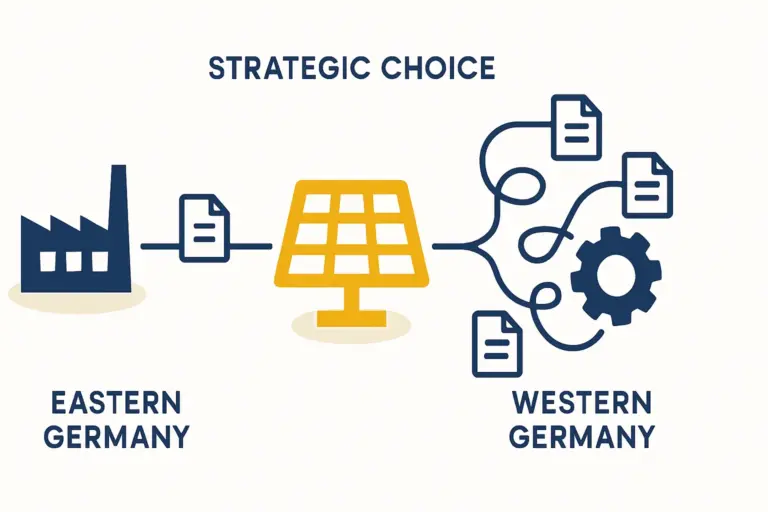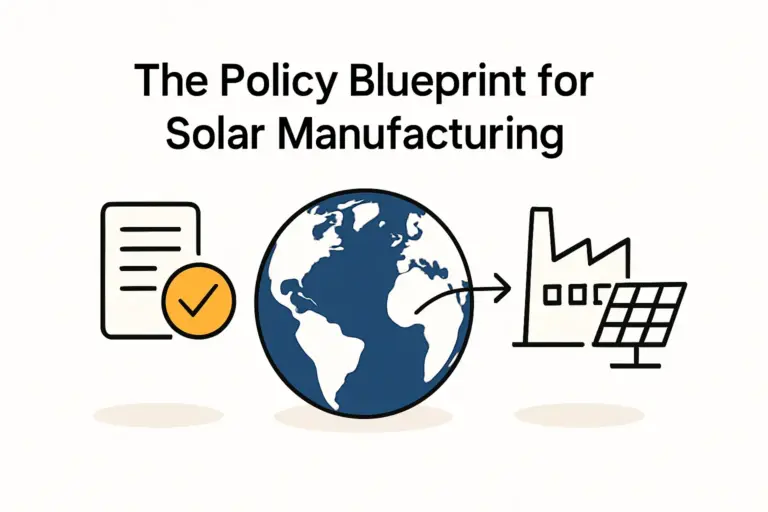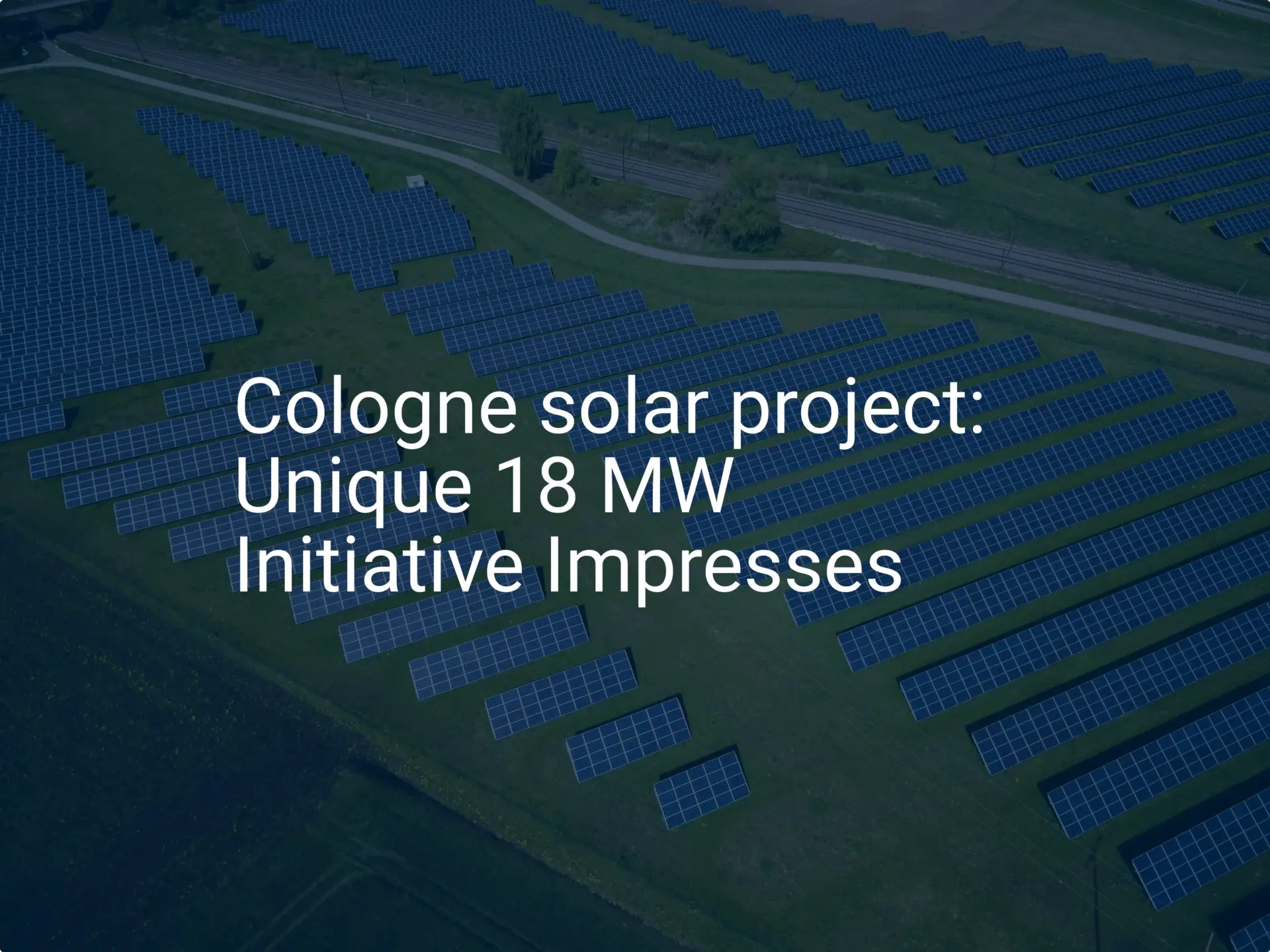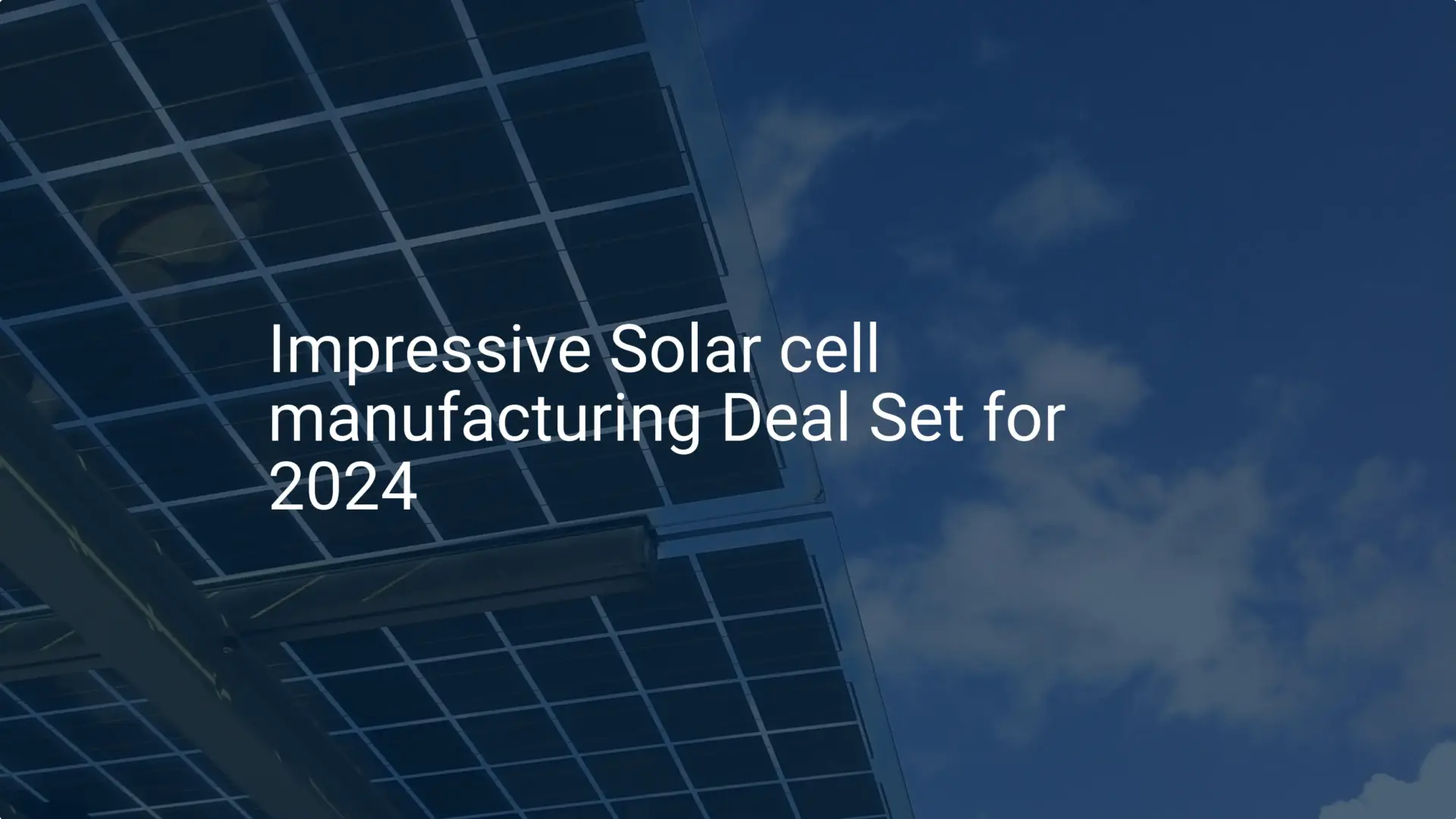While the global solar market is often a game of high-volume, low-cost production, a distinct and profitable niche remains for premium, German-engineered solar modules. For an investor or entrepreneur, establishing a production line in Germany isn’t about competing on price; it’s a strategic decision to compete on quality, reliability, and brand equity. This approach targets international markets where discerning buyers are willing to pay a premium for long-term performance and peace of mind.
This article explores the business case for such a premium manufacturing strategy, covering the market dynamics, financial considerations, and operational requirements for success.
Understanding the ‘Made in Germany’ Brand Equity
The “Made in Germany” label carries significant weight in the global marketplace. For decades, it has been synonymous with precision engineering, durability, and innovation. In the solar industry, where an asset is expected to perform reliably for over 25 years, these attributes are not just desirable—they are bankable.
International buyers in premium segments see German-made modules as a lower-risk, higher-yield investment. This perception is built on several key factors:
-
Superior Materials and Components: Manufacturing in Germany means access to a highly developed supply chain of quality materials, from specialized glass to high-purity silicon wafers.
-
Advanced Manufacturing Processes: The German engineering ecosystem, supported by world-renowned research institutions like the Fraunhofer Institute for Solar Energy Systems (ISE), is at the forefront of production technology.
-
Strict Quality Control: A culture of precision and adherence to exacting standards ensures a level of product consistency that is hard to replicate.
This brand trust allows manufacturers to command a higher price per watt—the cornerstone of this business model’s profitability.
Target Export Markets for Premium Modules
A premium product requires a premium market. A German-based factory wouldn’t target utility-scale projects where cost per watt is the main deciding factor. Instead, the focus shifts to segments that prioritize lifecycle value, energy security, and performance guarantees.
Key Market Segments:
-
High-End Residential: In developed markets like the United States, Australia, and Western Europe, homeowners often view solar as a long-term home improvement. They are willing to pay more for modules with superior aesthetics, proven durability, and strong warranty backing.
-
Commercial and Industrial (C&I): For businesses with critical operations—such as data centers, manufacturing plants, or hospitals—the reliability and guaranteed output of a premium module over 25 years outweigh a lower initial purchase price. This is especially true in regions where grid stability is a concern.
-
Specialized Applications: Niche markets like building-integrated photovoltaics (BIPV), agrivoltaics, and off-grid installations in harsh environments demand robust and highly reliable modules. “Made in Germany” serves as a powerful credential in these sectors.
For a business owner in North America or the Middle East, offering a German-made module provides a clear differentiator from the flood of standard-tier products, allowing them to target these more lucrative client segments.
Strategic Advantages of a German Production Base
Locating a solar module factory in Germany offers more than a brand label; it provides tangible operational and strategic benefits that support a premium business model.
Proximity to Innovation and Supply Chains
Germany is a hub for photovoltaic research and development. A local presence makes it easier to collaborate with research institutes and provides direct access to the latest advancements in cell technology and the solar module manufacturing process. In addition, the European supply chain for critical equipment and high-quality raw materials is robust, reducing logistical complexity and lead times.
The Role of Automation in Managing Costs
While labor and energy costs in Germany are higher than in many other manufacturing regions, a strategic focus on high levels of automation helps offset these factors. Modern, highly automated production lines minimize manual handling, which not only reduces the labor cost per unit but also dramatically increases product consistency and quality.
Based on experience from J.v.G. turnkey projects, a 50-100 MW facility can be operated efficiently with a lean, highly skilled workforce focused on process oversight, quality assurance, and maintenance rather than manual assembly.
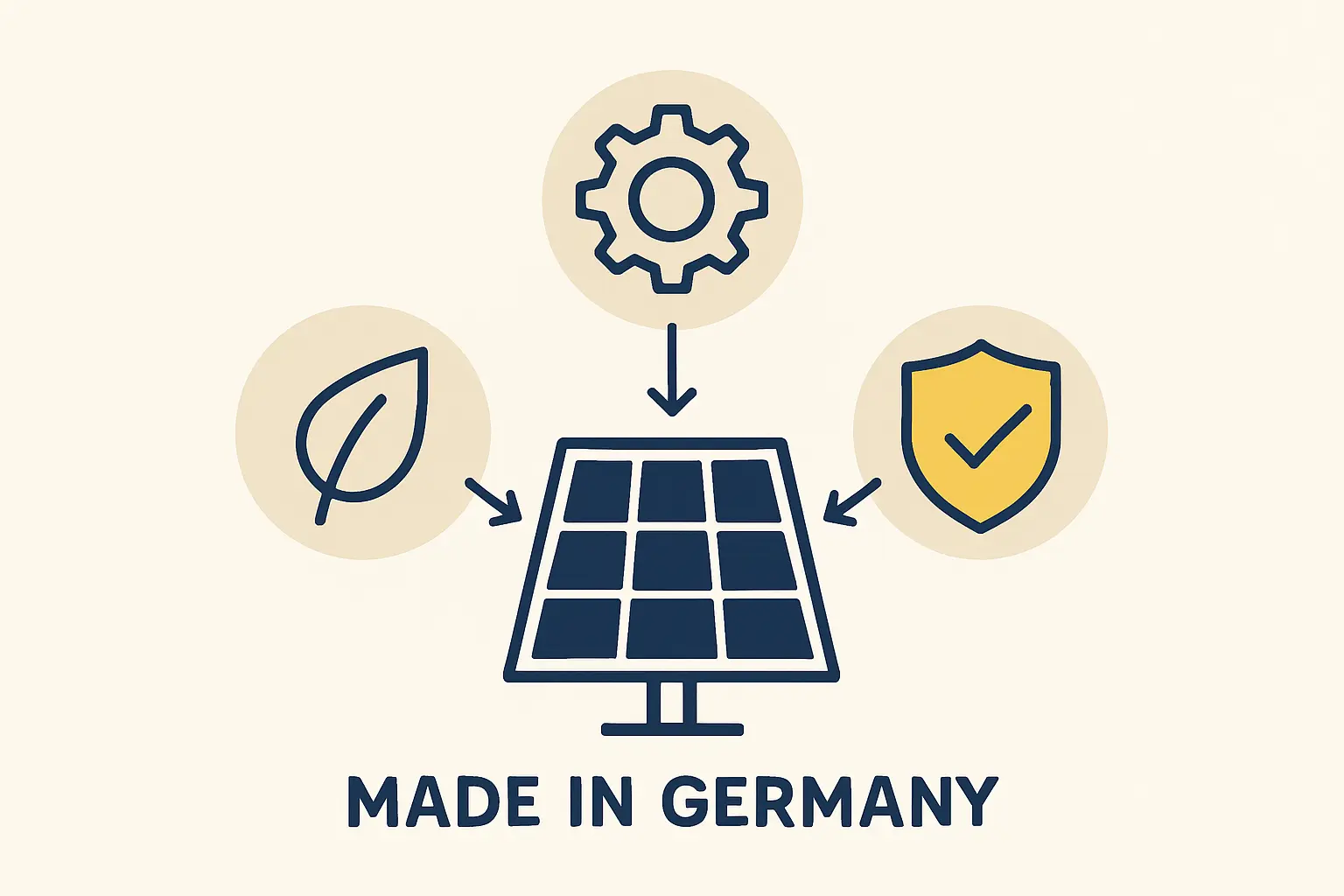
Financial and Political Stability
Establishing a factory is a significant capital investment. Germany’s stable political climate, strong legal framework, and predictable economic policies create a secure environment for attracting long-term investment from entrepreneurs and financial institutions alike.
Validating Quality: The Importance of Certification
The “Made in Germany” claim must be substantiated by independent, third-party validation. Rigorous testing and certification are non-negotiable for accessing premium export markets. These credentials provide verifiable proof of a product’s quality, safety, and performance.
Key certifications include:
-
TÜV Rheinland / VDE: These German certification bodies are globally recognized as the gold standard for solar product testing. A TÜV or VDE certificate signals that a module has passed stringent tests for durability, electrical safety, and performance under various environmental conditions.
-
IEC Standards (61215 & 61730): These are the international baseline standards for module design and safety.
-
Region-Specific Certifications: Export markets may have additional requirements, such as UL certification for the United States.
Securing these solar panel certifications is a critical step in the go-to-market strategy. It transforms a brand promise into a verifiable fact, giving distributors and end-customers the confidence to pay a premium.

While the initial investment requirements for a solar factory and operational expenses in Germany are higher, the achievable price premium of 15-30% on the final product makes the business model viable. The strategy is to invest in the quality and brand that justifies this premium.
Frequently Asked Questions (FAQ)
Is it possible to compete with Asian manufacturers on price?
The “Made in Germany” strategy isn’t about competing on price; it’s about competing on value. The business model is built on serving a market segment that prioritizes long-term reliability, guaranteed performance, and brand trust over the lowest possible upfront cost. The goal is to be the best, not the cheapest.
What factory size is viable for this premium model?
Unlike mass-market manufacturing that requires gigawatt-scale factories, a premium model can succeed with smaller, more flexible production lines. A capacity of 50 MW to 200 MW per year is often an ideal starting point. This allows for a focus on quality control and the ability to adapt to new technologies without the massive capital expenditure of a gigafactory.
How critical is automation in a German production line?
Automation is absolutely critical. It is the primary tool for offsetting higher labor costs while simultaneously enhancing product quality and consistency. A modern German line relies on robotics and process automation for tasks like cell stringing, lamination, and framing, with human oversight focused on quality assurance.
What are the primary challenges for this business model?
The main challenges include a higher initial capital investment, the need to build a strong brand and distribution network in target export markets, and navigating international trade and logistics. Success requires a well-structured business plan and experienced partners.
Can an investor from outside the EU successfully establish such a factory in Germany?
Yes, Germany is open to foreign investment. However, success requires local expertise to navigate regulatory approvals, labor laws, and engineering standards. For non-European investors, working with a partner who has experience setting up turnkey production lines in Germany is essential to manage the complexities of the process.
Conclusion and Next Steps
Establishing a solar module production line in Germany to serve premium export markets is a viable and potentially highly profitable business strategy. It demands a clear focus on quality over volume, a significant investment in automation, and a sophisticated marketing approach that leverages the powerful “Made in Germany” brand.
This path is not for every investor. But for those with a long-term vision, it offers the opportunity to build a respected and enduring business at the high end of the global solar industry.
For any investor seriously considering this strategic direction, the next logical step is to develop a comprehensive financial model and operational plan. Reviewing a detailed solar panel manufacturing business plan can provide the framework needed to evaluate the feasibility and potential returns of such an investment.
